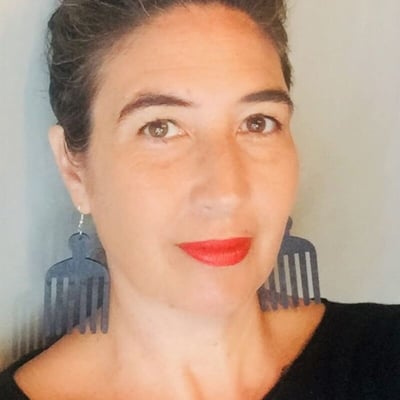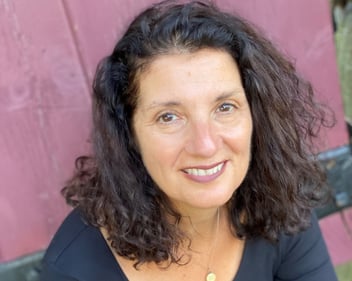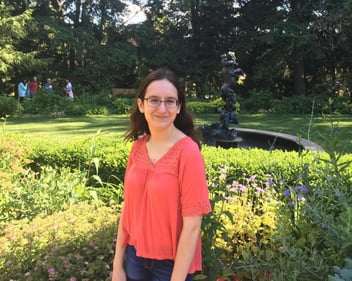
Poetry and spoken word are unique, empowering genres, dear writers. They enliven and educate, capture and contain, ignite and amplify. Throughout history, the oral tradition has allowed poetic storytelling to transcend the page, galvanizing communities to come together and share their voices, their stories, around a common message. In this way, poetry has catalyzed change.
In our interview this month, poet, editor, and cultural producer Annie Te-Whiu—Write the World Guest Judge for our Poetry & Spoken Word Competition—shares incredible insight into the work and art of reading and writing poetry. May her words inspire you to pen (or perform!) some of your own.
In what ways does your work as a producer and editor inform your craft as a poet?
Currently, my work as a producer and editor is more contained because this is work I am lucky enough to be employed to do. I work as a Senior Project Manager at Red Room Poetry in Sydney, Australia and a significant part of my role is to produce and edit projects. With this is mind, I see poetry as a deeply personal and process driven craft. Because it is not my paid employment to ‘write poetry,’ I turn to the poetic form as the hull of my expression. Poetry is the waka (canoe) which I set sail on open seas to see where it leads me. I can look to the horizon or the shoreline and know that whatever is written, is from within me and my intention alone. Working in a professional capacity as a producer and editor, I am bound to take into consideration many more pragmatic factors such as a budget, a timeline and an organisation’s vision. With poetry, my craft is untethered.
In your bio, you mention that you are— in addition to a writer, editor and cultural producer—a weaver and theatre practitioner! In what ways do your multiple creative pursuits inform one another?
My creative pursuits inevitably have a korero (conversation) with each other and are always having a conscious or unconscious dialogue. It’s difficult to separate my work as a writer, editor and cultural producer with weaving and theatre—they are not siloed. They complement each other and allow for concepts and the work to be challenged or nurtured, whatever is needed. I have a really broad palette of artistic tastes, influences and aesthetics and like to allow each of my practices to push or complement the other.
What would you say is your creative “ethos”? What messages and values do you seek to convey?
My creative ethos is much more about asking questions and opening up ideas rather than specifically providing answers. Messages and values are slippery and very contextual. Having said this, I am naturally a very socio/political person and my ears are tuned in to those who are outsiders or relegated to the fringe. My privilege of being employed in the arts gives me the rare opportunity to create platforms for artists who wouldn’t necessarily have access to the microphone, to amplify their voices.

You are passionate about giving a platform to the voices of First Nation and culturally and linguistically diverse artists. Can you share more about this? Why is this more important than ever?
We are experiencing the negative impact of colonial institutions failing us as a society and our precious earth more and more. Simultaneously we’re seeing the rise of First Nations, CALD & PoC voices move to the front and really lead the way, highlighting that which matters, beyond valuing economic structures—such as community over individualism. I am motivated by the idea of the ‘other’ moving to the centre and shifting dominant systems and voices. Some sectors of the arts, especially poetry and spoken word forms, are genuinely pivoting towards prioritising First Nation voices and celebrating that there is not one, single indigenous voice. We need to hear from the multitude of ‘other’ voices and embrace a new (which is actually ancient) way of thinking and connect with each other and our environment in the way our tūpuna (ancestors) did. Artforms like poetry are portals which can be a time-machine we take, looking backwards whilst moving forwards.
What are you looking for in a winning poetry or spoken word entry?
I love work that slices through, that is tender, that is full of fire and is also funny. I appreciate work that has rhythm, work that is challenging and also accessible, and spoken word that comes from an authentic spirit. For me, the winning entry will be undeniable because that voice needs to be heard.
Anne-Marie Te Whiu is a cultural producer and editor. She is the co-editor of Solid Air: Australian and New Zealand Spoken Word—the first anthology of its kind. She is also co-editor of Verity La’s spoken word stream ‘Slot Machine’ and ‘Discoursing Diaspora’. She was co-director of the Queensland Poetry Festival from 2015 to 2017. Anne-Marie is a Maori-Australian poet, weaver and experienced theatre practitioner. Born and raised in Brisbane, Australia, she is a proud descendant of the Te Rarawa tribe in Northland, Aotearoa, New Zealand.





